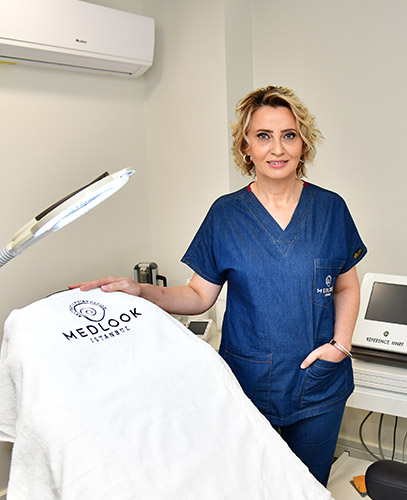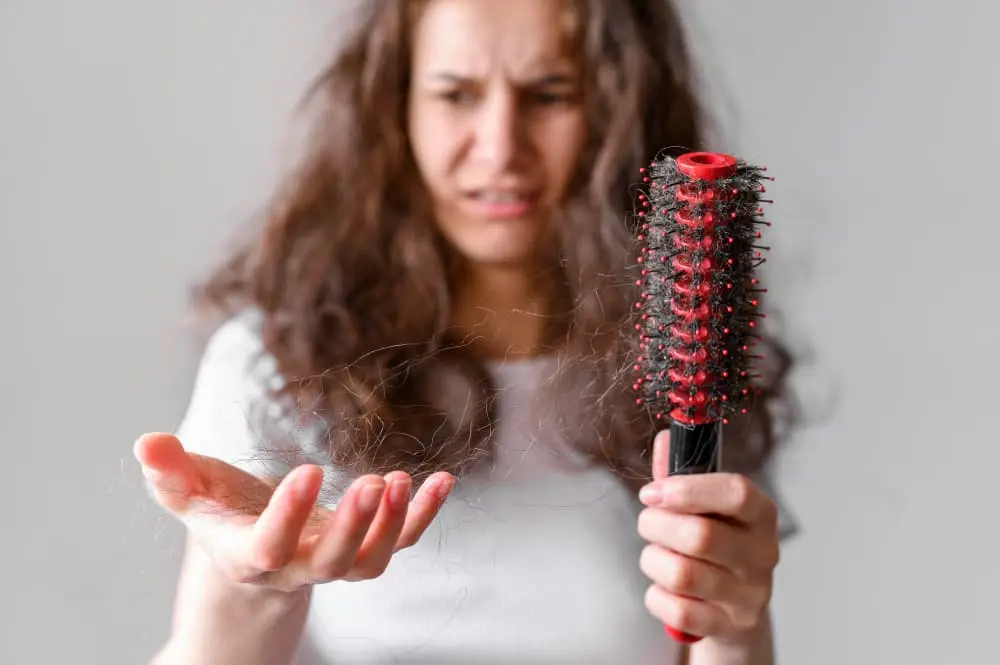
Hard water has long been a topic of concern when it comes to hair health. Characterized by high levels of minerals like calcium and magnesium, hard water can affect the condition and appearance of your hair.
Many people report issues such as dryness, tangles, and a lackluster appearance, leading to suspicions that hard water may also contribute to hair loss. Understanding the impact of hard water on your hair is crucial for taking the right steps to protect and maintain your hair’s natural vitality and growth.
This article will delve into the relationship between hard water and hair loss, shedding light on myths and offering practical advice for those dealing with hard water effects.
Understanding Hard Water and Its Effects on Hair

Hard water is water that contains high concentrations of dissolved minerals, primarily calcium and magnesium. It is a common condition in many geographical areas, particularly where groundwater seeps through limestone and chalk deposits, which are rich in these minerals. The degree of hardness varies and is usually measured in grains per gallon or milligrams per liter.
How Does Hard Water Affect Hair?
When washing hair with hard water, the minerals can accumulate on the scalp and hair strands, leading to several issues. This mineral buildup can make it difficult for moisture to penetrate the hair, which can result in dryness and brittleness.
Additionally, it can affect the scalp’s health, potentially leading to irritation and dandruff. Hard water also tends to make shampoos and soaps less effective, leading to poorer cleansing and conditioning.
Signs Of Hard Water Damage On Hair
Recognizing the signs of hard water damage on your hair is the first step towards mitigating its effects. Common indicators include:
- Dullness and lack of shine: Hair washed in hard water often loses its sheen, becoming dull and lifeless.
- Increased hair breakage and thinning: The harsh minerals can weaken hair strands, making them more prone to breakage.
- Difficulty styling: Residue from hard water can leave hair feeling sticky or tacky, making it harder to style.
- Tangles and matting: The rough texture caused by mineral buildup can lead to increased tangles and knots.
- Dry scalp and dandruff: Hard water can dry out the scalp, potentially exacerbating or causing dandruff and itchiness.
By recognizing these signs, you can take appropriate steps to protect your hair from the adverse effects of hard water.
Hard Water and Hair Loss: Can It Be a Cause?
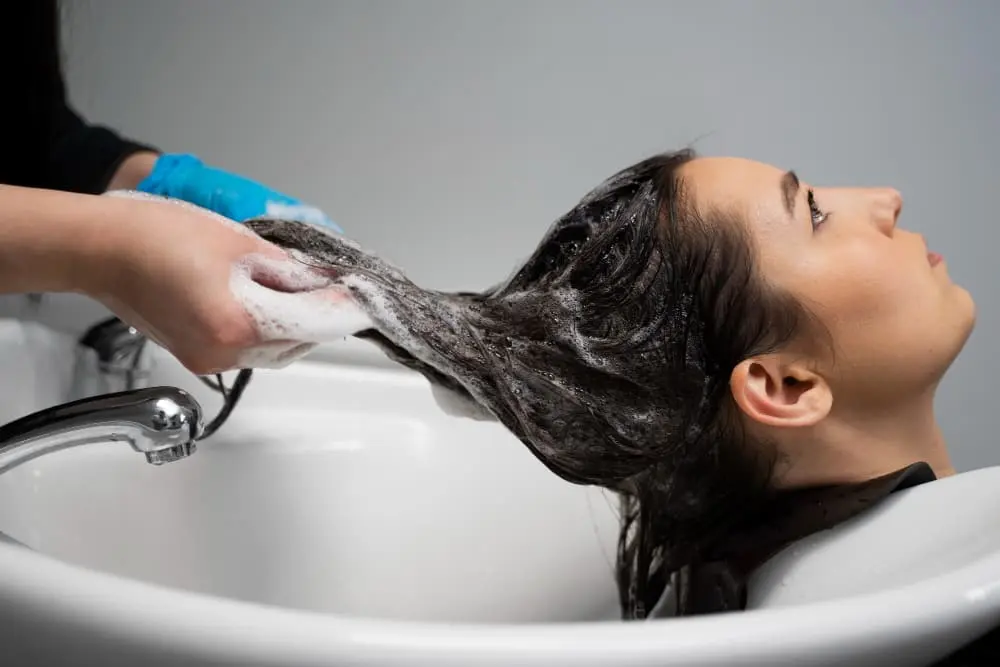
While direct scientific evidence linking hard water to hair loss is limited, several studies suggest that the minerals in hard water can indirectly contribute to hair thinning. These minerals, primarily calcium and magnesium, can deposit on the scalp and hair shaft, leading to various structural and cosmetic changes that might exacerbate hair loss conditions.
However, it is important to note that while hard water can impact hair’s condition and health, there is no conclusive evidence that it can cause permanent hair loss.
Factors Contributing To Hair Loss With Hard Water
There are several mechanisms through which hard water can contribute to increased hair shedding:
- Mineral buildup: The minerals in hard water can accumulate on the scalp and hair, weighing down hair and making it more prone to falling out during brushing or washing.
- Interference with hair products: Hard water can reduce the efficacy of shampoos and conditioners, leading to less effective cleaning and conditioning. This can leave hair more vulnerable to damage and shedding.
- Scalp irritation: Frequent exposure to hard water can irritate the scalp, leading to conditions like dermatitis, which is associated with hair loss.
Addressing Hair Loss Concerns Related To Hard Water
If you’re concerned about hard water’s effect on your hair, consider the following steps to mitigate its impact:
- Use a water softener: Installing a water softener in your home can significantly reduce the mineral content in your water, thereby protecting your hair from hard water damage.
- Clarifying shampoos: Use clarifying shampoos regularly to remove mineral buildup from your hair and scalp.
- Shower filters: Consider installing a shower filter that specifically targets the minerals common in hard water.
- Moisturizing treatments: Regular deep conditioning treatments can help restore moisture and resilience to hair affected by hard water.
- Consult a dermatologist: If you notice significant hair loss, consulting with a healthcare professional can help determine if hard water is a contributing factor or if another underlying condition may be at play.
By understanding these factors and taking proactive measures, you can help prevent the potential adverse effects of hard water on your hair health and overall appearance.
Protecting Your Hair from Hard Water Damage
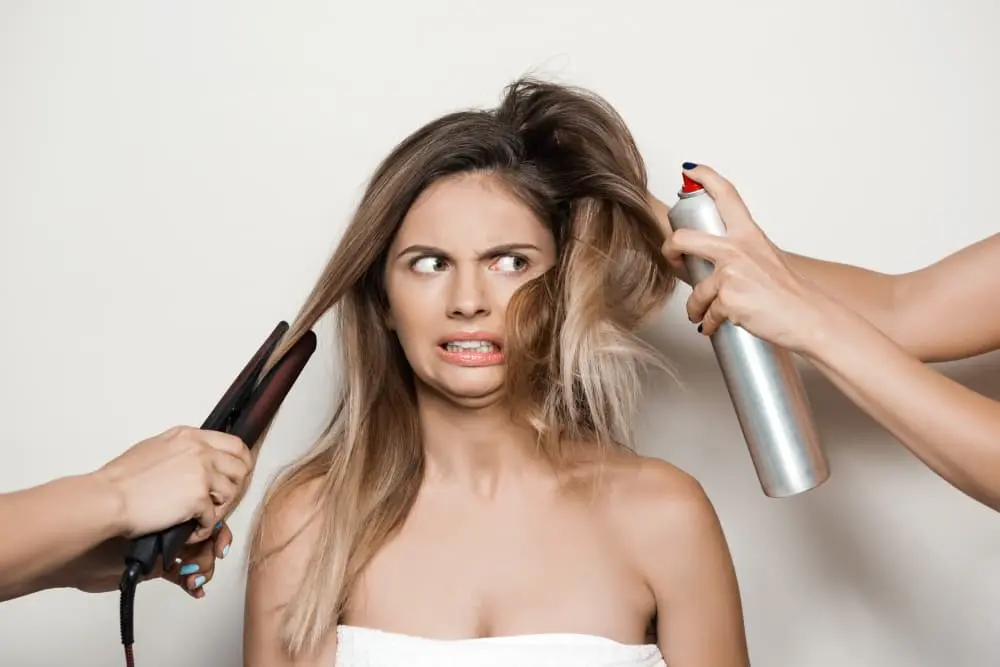
Protecting your hair starts by mitigating the effects of hard water in your home. Here are some practical approaches:
- Install a whole-house water softener: This system uses salt to replace the hard minerals like calcium and magnesium with sodium, significantly reducing water hardness.
- Use a shower head filter: A more affordable option, these filters attach directly to your shower head and can remove many of the minerals that cause hardness.
- Vinegar rinse: Regularly rinsing your hair with diluted vinegar can help dissolve mineral buildup, restore pH balance, and bring back shine and softness to your hair.
Hair Care Tips For Combating Hard Water Effects
Adjusting your hair care routine is essential in areas with hard water:
- Clarifying shampoo: Use a clarifying shampoo once a week to cleanse away mineral deposits and product buildup.
- Moisturizing conditioner: Follow every wash with a hydrating conditioner to counteract the drying effects of hard water.
- Leave-in conditioner: Applying a leave-in conditioner can provide a protective barrier, reducing the direct contact of hard minerals with your hair.
- Limit heat styling: Hard water can make your hair more susceptible to damage from heat styling tools. Limit their use and always apply a heat protectant.
Maintaining Healthy Hair Despite Hard Water Exposure
Even with hard water, you can maintain healthy hair by following these guidelines:
- Regular hair masks: Use deep conditioning masks weekly to infuse your hair with moisture and essential nutrients.
- Drink plenty of water: Hydration starts from within, so ensure you drink plenty of water to help keep your hair hydrated.
- Protective hairstyles: Wear your hair in protective styles such as braids or buns to minimize exposure to hard water during showers.
- Balanced diet: A diet rich in vitamins and minerals can strengthen your hair from the inside out, making it less prone to damage from external factors like hard water.
By integrating these strategies into your routine, you can effectively reduce the impact of hard water on your hair, ensuring it remains healthy, strong, and vibrant.
Hair Restoration Options for Hard Water Damage
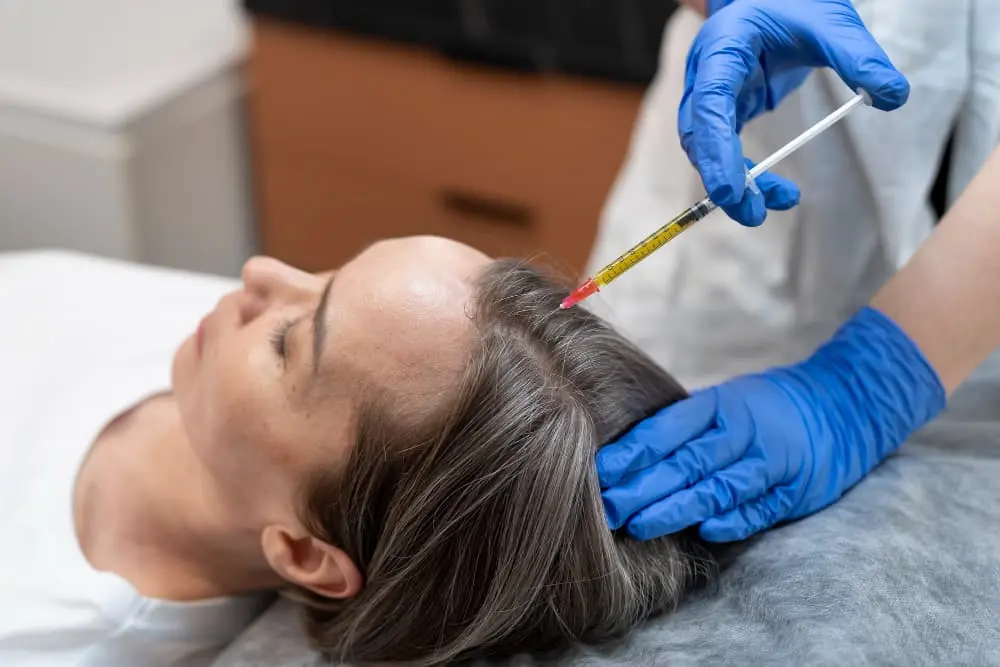
If you find that hard water is significantly impacting your hair health, leading to noticeable thinning or increased hair fall, it may be time to consider more intensive hair restoration options. Chronic hair loss, especially when associated with hard water exposure, can sometimes permanently affect the hair follicles, making it difficult to regain hair density with topical treatments alone.
Exploring Hair Transplant Solutions For Hard Water Damage
Hair transplantation can be a viable solution for those suffering from significant hair loss due to hard water. This procedure involves transplanting hair follicles from denser areas of your scalp, or other body parts, to the thinning areas. Techniques such as Follicular Unit Extraction (FUE) and other advanced methods are popular for restoring hair growth effectively:
- Follicular Unit Extraction (FUE): This method involves the individual removal of hair follicles from the donor area and their reinsertion into the thinning areas. FUE ensures minimal scarring and natural-looking results by using a precise extraction process.
- Sapphire FUE: This technique is a refined version of the standard FUE method, using sapphire blades to create the incisions for transplanting hair follicles. The use of sapphire blades allows for more precise and smaller incisions, resulting in less scarring and a quicker healing process.
- DHI (Direct Hair Implantation): DHI involves the direct implantation of hair follicles into the recipient area using a specialized tool called a Choi pen. This method allows for greater control over the angle, direction, and depth of the implanted follicles, leading to a more natural-looking result with higher density.
- Stemcell Supported Hair Transplant: This innovative technique combines traditional hair transplantation methods with stem cell therapy. Stem cells are used to enhance the healing process and promote the growth of transplanted hair follicles, potentially leading to better overall results and faster recovery times.
By using these advanced techniques, hair transplantation can provide effective and natural-looking solutions for hair loss caused by hard water or other factors.
Professional Hair Restoration Services For Hair Loss
For those looking for non-surgical options or supplementary hair treatments, professional hair restoration services offer a variety of solutions:
- PRP (Platelet-rich plasma) therapy: This involves drawing a small amount of your blood, processing it to enrich for platelets, and reinjecting it into the scalp to stimulate hair growth. PRP therapy is known for enhancing hair thickness and growth by utilizing the growth factors in your blood to rejuvenate hair follicles.
- Hair Mesotherapy: This treatment involves injecting a combination of vitamins, minerals, amino acids, and medications directly into the scalp. Hair mesotherapy aims to improve blood circulation, nourish hair follicles, and stimulate hair growth. It can be an effective method for treating hair loss and improving the overall health of your hair.
- Stem Cell Treatment: Stem cell therapy for hair loss involves using stem cells to stimulate the growth of new hair follicles. This treatment can help regenerate hair in areas where follicles have become dormant or have been damaged. Stem cells are known for their regenerative properties, making this an innovative approach to hair restoration.
- Indirect Stem Cells Treatment: This treatment uses growth factors and other beneficial components derived from stem cells to promote hair growth and improve scalp health. Instead of using live stem cells, this method utilizes the bioactive elements that stem cells produce, providing similar regenerative benefits.
Combining these professional treatments with home care adjustments to manage hard water effects can significantly improve hair health and reduce the impact of hair loss. Consulting with a doctor can provide personalized advice and help you choose the best treatment plan based on the severity of your hair loss and your individual needs.
Conclusion: Addressing Hard Water and Hair Loss

Understanding the effects of hard water on your hair is crucial for maintaining its health and vitality. Key points to remember include:
- Mineral Buildup: Hard water contains high levels of minerals like calcium and magnesium, which can deposit on the hair and scalp, leading to dryness, brittleness, and potential hair loss.
- Reduced Product Efficacy: The minerals in hard water can interfere with the effectiveness of hair care products, making them less efficient in cleansing and conditioning.
- Potential for Hair Damage: Continuous exposure to hard water can cause significant hair damage, making it dull, tangled, and more susceptible to breakage.
Protecting Your Hair And Addressing Hair Loss Concerns
To combat the negative effects of hard water on your hair, consider implementing protective measures:
- Water Softening Solutions: Installing a water softener system or using a shower head filter can significantly reduce the hardness of the water.
- Appropriate Hair Care Products: Utilizing clarifying shampoos and deep conditioning treatments can help remove mineral buildup and restore moisture.
- Regular Hair Maintenance: Adopting a hair care routine that includes regular moisturizing and protective styling can help mitigate the effects of hard water.
Seeking Professional Advice for Hair Restoration Needs
If hair loss persists despite taking preventive measures, it might be time to consult with a professional. Hair specialists, such as physicians, can offer guidance based on the specific condition of your hair and scalp. They may suggest:
- Advanced Treatments: Procedures like hair transplants, PRP therapy, hair mesotherapy or stem cell treatments for hair might be recommended for more severe cases.
- Customized Hair Care Plans: Professionals can provide tailored advice on hair care products and routines that best suit your hair type and water quality.
By understanding the challenges posed by hard water and taking proactive steps to protect and restore your hair, you can maintain its health and appearance. Remember, early intervention and professional guidance are key to effectively managing hard water effects and preventing long-term hair loss.
Why Choose Our Istanbul Clinic for Hair Transplants?
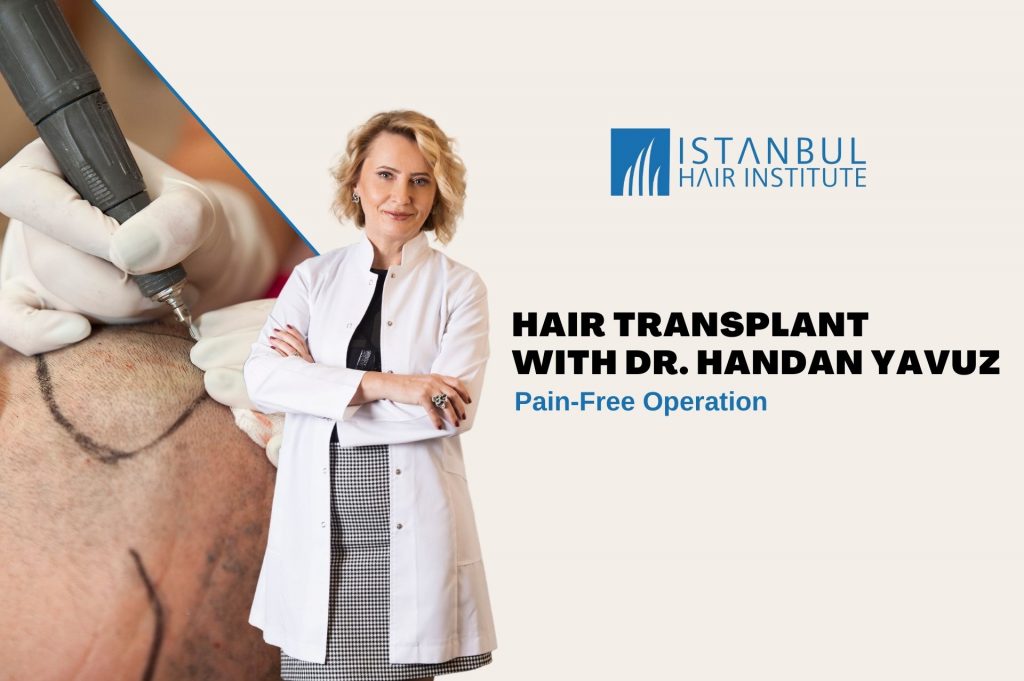
At our clinic, located in the heart of Istanbul, we are dedicated to providing top-tier hair transplant services that blend expert medical care with cutting-edge technology. Here are several compelling reasons to choose us for your hair restoration needs:
Expertise and Experience
Our team is composed of highly skilled professionals who specialize in the latest hair transplant techniques. With years of experience and a deep understanding of hair restoration, we ensure that every procedure is performed with precision and care.

State-of-the-Art Technology
We utilize advanced technology to achieve the best outcomes. From Follicular Unit Extraction (FUE) to Direct Hair Implantation (DHI), our methods are designed to minimize discomfort and maximize results, ensuring a natural and dense hair appearance.
Personalized Care
We believe that each client has unique needs and expectations. We take the time to understand your specific hair loss pattern and lifestyle, providing a customized treatment plan tailored just for you. Our goal is to not only restore your hair but also to boost your confidence and improve your quality of life.

Comprehensive Support
From the initial consultation through post-operative care, we are with you every step of the way. Our team provides comprehensive support and guidance to ensure a smooth and comfortable experience. We are committed to addressing all your concerns and ensuring your utmost satisfaction.
Internationally Recognized
Our clinic is renowned for its exceptional standards and has attracted patients from around the globe. We are proud to uphold a reputation as one of the leading hair transplant centers in Istanbul, a city known for its medical tourism excellence.
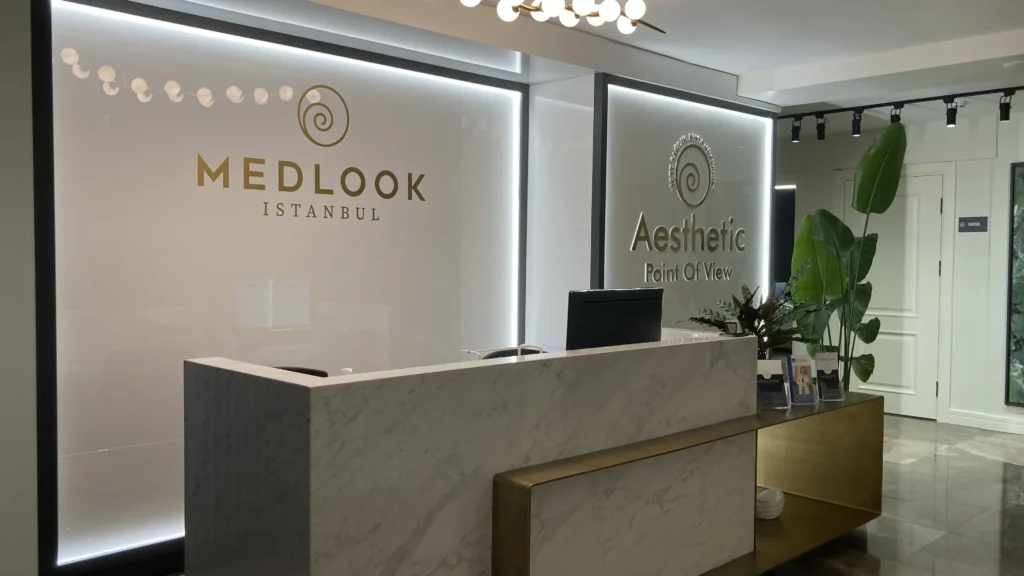
Ethical and Transparent Practices
We operate with the highest ethical standards, providing honest advice and transparent pricing.
There are no hidden costs, and we ensure you have all the information you need to make an informed decision.
Choosing us means opting for a world-class experience in one of the most beautiful cities in the world. At our Istanbul clinic, we don’t just restore hair—we restore your self-image and confidence. Visit our website at Istanbul Hair Institute to learn more and begin your journey to a fuller, healthier head of hair.
Recent Posts
-
 Effective Solutions for Seasonal Hair Loss: What Treatments to Consider04 Feb 2025
Effective Solutions for Seasonal Hair Loss: What Treatments to Consider04 Feb 2025 -
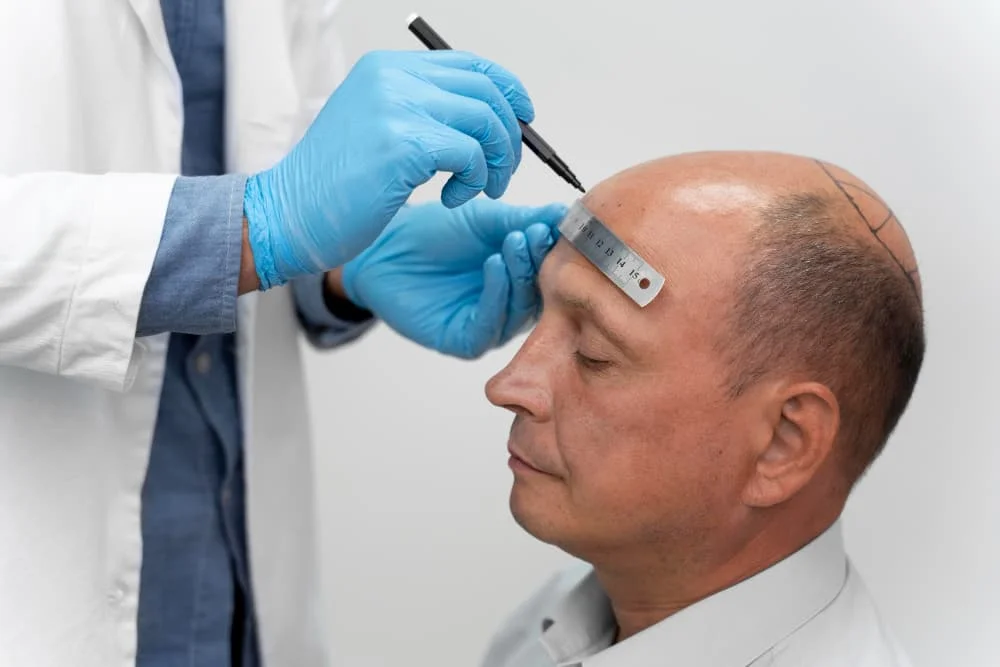 Does the Density of Hair Transplants Matter? Achieving a Full Look04 Feb 2025
Does the Density of Hair Transplants Matter? Achieving a Full Look04 Feb 2025 -
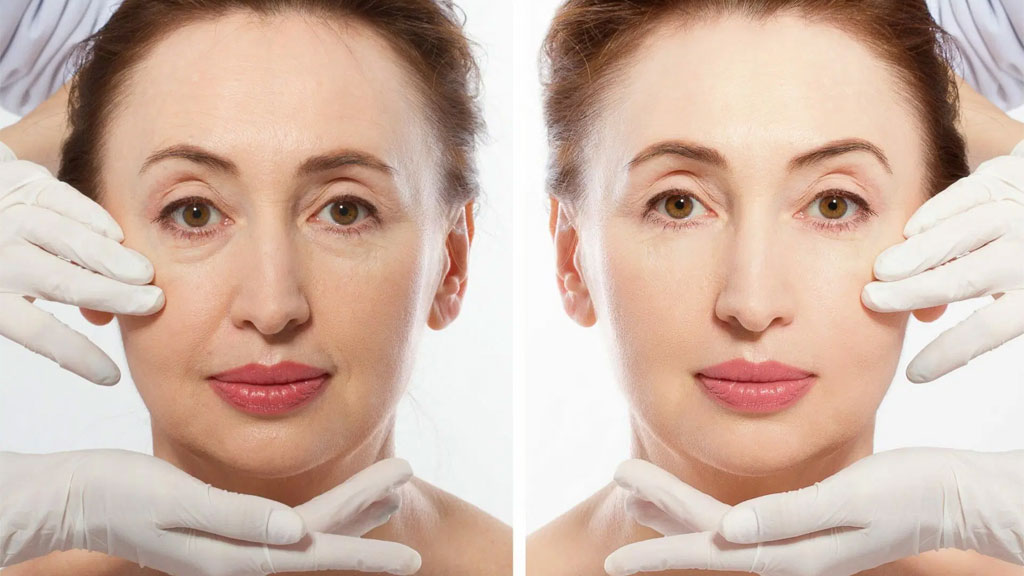 Look Younger: Mini Facelift and Neck Rejuvenation02 Feb 2025
Look Younger: Mini Facelift and Neck Rejuvenation02 Feb 2025 -
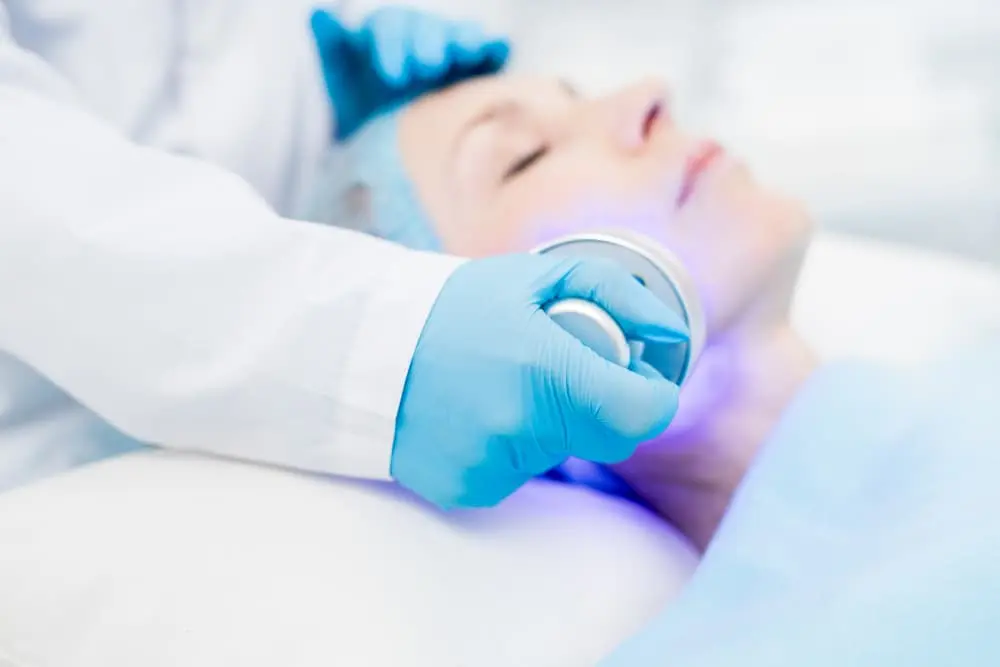 Can Ozone Therapy Really Boost Your Mood and Energy Levels?02 Feb 2025
Can Ozone Therapy Really Boost Your Mood and Energy Levels?02 Feb 2025 -
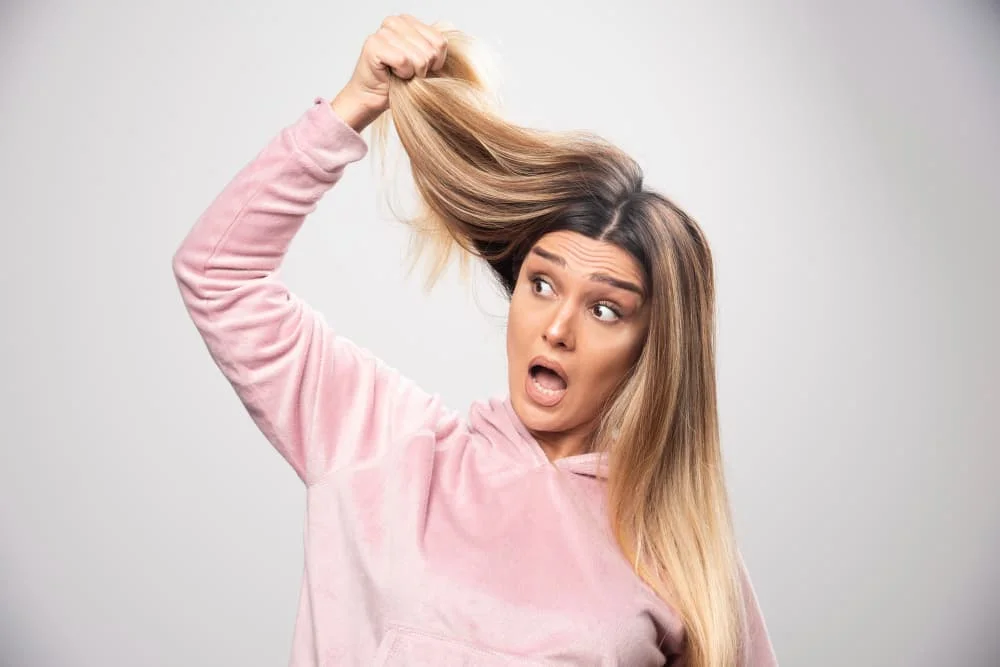 Say Goodbye to Static: How to Get Rid of Static in Hair29 Jan 2025
Say Goodbye to Static: How to Get Rid of Static in Hair29 Jan 2025
